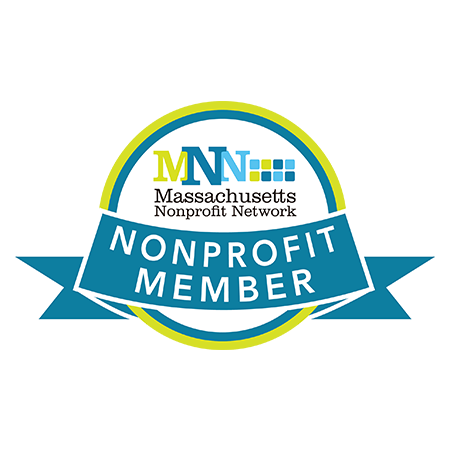 Liza Cowan Garonzik is the founder and CEO of R.E.A.L.® Discussion, which breaks the art of discussion into teachable, assessable skills for a generation of students who would rather text than talk. The following is a conversation between Liza and ThinkGive Executive Director Penny Austen. This conversation has been lightly edited for clarity.
Liza Cowan Garonzik is the founder and CEO of R.E.A.L.® Discussion, which breaks the art of discussion into teachable, assessable skills for a generation of students who would rather text than talk. The following is a conversation between Liza and ThinkGive Executive Director Penny Austen. This conversation has been lightly edited for clarity.
Penny Austen: I’m excited to speak with you today. Our organizations have a lot in common—we both share a commitment to fostering meaningful conversations, building empathy, and promoting prosocial behavior. I’d love to learn more about R.E.A.L.® Discussion. Can you describe your programs and goals?
Liza Cowan Garonzik: R.E.A.L.® partners with schools to do three things: teach, measure, and celebrate discussion skills. We take this approach because discussion is how schools run, and it’s how lives are built. It’s like all the kindness ThinkGive talks about and all the strong relationships—how do those happen? Usually through discussion, whether in a classroom or on a playground. We partner with schools to articulate a strategy for ensuring that discussion skills are explicitly taught, tracked, and celebrated as part of the school culture.
Penny Austen: So, you’re focusing on the connective tissue of everything these students do?
Liza Cowan Garonzik: Absolutely. For youth growing up in today’s world, with so much screen time and so few examples of great discussions out in the world, that connective tissue is quickly decaying—unless we’re proactive about reinforcing it.
Penny Austen: What would you say makes R.E.A.L.® unique?
Liza Cowan Garonzik: R.E.A.L.® is devoted to teachers. I was a teacher who built R.E.A.L.® to solve challenges I saw in my classroom over a decade ago. From the beginning, R.E.A.L.® was developed through piloting—having teachers test it and give feedback. Even today, all of our professional development is run by full-time teachers in schools. Everything we do is about supporting teachers, not just with the initial training but by ensuring they feel equipped to launch the R.E.A.L.® program in their classrooms and supported every step of the way.
This means we have monthly meetups, coaching, and opportunities to network, celebrate, and share best practices. The feedback we consistently get is: “You get it. You understand what it’s like to be a teacher.” I think our focus on really challenging and delighting teachers—our “pedagogical pioneers”—is a big part of what we do, and we’re so proud to support schools in this way.
Penny Austen: How would students describe the program?
Liza Cowan Garonzik: Students often say things like, “This makes sense. No one’s ever taught me this before.” We hear that feedback all the time. Or, “Now I feel like I know what to do.” At R.E.A.L.®, we survey students every three discussions, and we’ve built a database of qualitative responses. There’s a quote from an 8th grader in Tennessee who said, “R.E.A.L.® has made it so when I’m in a store and someone talks to me, I don’t just stand there with my head down.” We see a lot of transfer to real life. From older students, we often hear things like, “I’ve learned how to disagree with ideas, not identities,” “I’m not afraid to disagree,” or “We can disagree and still be friends.”
Penny Austen: If we believe that action and reflection are key to fostering growth in young people, how does R.E.A.L.® use structured conversations to achieve similar outcomes? And what role do reflection and dialogue play in youth development?
Liza Cowan Garonzik: We’re very much aligned in how we both use an action-reflection cycle at the student and teacher levels. Students reflect before every discussion and set personal goals. During the discussion, they stop, take notes, and reflect on what happened. Then, they write a final reflection at the end of the day. We build these routines for reflection throughout the conversation, and over time, it adds up. We talk about building muscle memory, and it’s actually in the reflection that much of the learning takes place.
When you ask teachers to reflect on a discussion, their initial thoughts tend to focus on logistics—like wishing their groups were bigger, the chairs were arranged differently, or on which voices were heard. But we help teachers step back and adopt more of a coaching mindset. For example, a teacher might say, “Here was my goal for today’s discussion—we wanted to foster productive disagreement. Based on the debrief I led at the end of class, we achieved that in these ways. Next time, we’ll try this.”
Teachers are going through their goal-setting, action, and reflection cycles. Often, teachers feel that if a discussion doesn’t go well, it’s their fault or that the class was a failure. By helping them develop their action-reflection process, their response becomes more like: “We’ll try this today, see how it goes, and then adjust for tomorrow.” This lowers the stakes, not just for students but for teachers as well.
Penny Austen: How does R.E.A.L.® support students in navigating uncomfortable, challenging conversations?
Liza Cowan Garonzik: At R.E.A.L.®, our thesis is, “You can’t expect kids to have great discussions across differences until you teach them how to have a discussion.” The idea is to learn and practice these skills with lower-stakes content. Kids probably aren’t going to end a friendship over differing perspectives on Romeo and Juliet in English class, right? So, the goal is to build these skills so that in moments of contention, the skills are second nature. Students already know how to process what’s happening, and they have sentence stems they can use. We teach them phrases like, “Tell me more about why you think that,” or, “That hadn’t occurred to me. Can you explain more of what you’re thinking?” or, “Where does that idea come from?”
Giving students go-to responses when they feel uncomfortable—whether in an academic or social context—can be incredibly helpful.
Similarly, we’re supporting teachers in those moments. Much of our professional development this summer focused on helping teachers prepare for tough discussions. We’re giving them the same tools—go-to sentence stems, ways to intervene, and what we call ‘interrupting intentionally.’ For example, if a teacher sees two students having a difficult conversation, they can step in by saying, “I’m noticing some tension here. I’d like to hear where you both are and help you through this conversation,” or “It’s okay to have hard conversations. What do we have in common?”
That one move gives kids a second chance to rephrase their point, and often they’ll say it better or emphasize a different aspect, which creates a path forward. It’s about equipping students with skills for the moment and empowering teachers to intervene in ways that build student efficacy while ensuring the intervention is neutral and supportive.
Penny Austen: When bringing R.E.A.L.® into a school, you do a lot of educator training. Is it then woven into their existing classrooms, or is there a dedicated class or block for R.E.A.L.® conversations?
Liza Cowan Garonzik: I dream that one day, just like schools had computer labs in the ’90s, every school will have a conversation lab. I don’t think that’s happening just yet, so for now, we focus on integrating R.E.A.L.® into existing English and history classrooms. In elementary schools, it’s often the homeroom teacher using R.E.A.L.®, incorporating it throughout the day in science, morning meetings, reading circles, and more.
Penny Austen: That actually overcomes a common barrier to entry, which is, “I don’t have time.”
Liza Cowan Garonzik: Exactly, and it’s more than that. We often hear that using R.E.A.L.® across subjects makes teaching discussion much more efficient and equitable. It’s easier for teachers to have a consistent system rather than feel like they need to reinvent the wheel for every single class discussion.
Penny Austen: How do you adapt, if at all, the discussion-based model to resonate with students from different backgrounds and communities? Does it apply to everyone, or are there specific adaptations needed?
Liza Cowan Garonzik: When we partner with a school, the first thing we do is talk to the school leadership to understand the school’s community and values and figure out how our emphasis on discussion fits into that. So, the program looks different in different schools, depending on what aspects they want to emphasize. At the classroom level, teachers also adapt the program, deciding which parts matter most to them. There are many built-in opportunities for differentiation. For instance, students choose their own discussion skills and goals, and this is where cultural background and personality come into play. Introverts tend to pick listening goals first, while extroverts might save those for later. Similarly, some students from different cultural backgrounds may feel uncomfortable disagreeing early on, as it might be challenging based on their upbringing. Teachers, knowing their students, can adapt the program to say, “I see this piece is hard for you” or “This comes naturally—let’s focus elsewhere.” R.E.A.L.® is a broad framework that distills the universal human need for conversation into something approachable for kids from all backgrounds.
Penny Austen: Great. And what about measuring the impact that R.E.A.L.® is having on students’ lives?
Liza Cowan Garonzik: We survey students after every three discussions, gathering quantitative and qualitative feedback. We don’t just measure growth in discussion skills, like how many more questions students ask or how much better they are at using evidence. We also measure a sense of belonging, using indicators like, “When I speak, I feel like my peers are listening to me,” or “I’m comfortable disagreeing,” or “I feel uncomfortable expressing an idea that’s different from what others have said.” These indicators are essential for teachers to know. We also get qualitative feedback, which often focuses on a sense of belonging and purpose. One of the most telling questions is, “How do you use R.E.A.L.® in your life?” That’s where we really see the impact. While it’s not part of the formal survey, we often hear from teachers that students will sit down and say, “Can we just have a R.E.A.L.® discussion about this?” It shows the sense of purpose and pride they feel, and that’s reflected in the data.
Penny Austen: What is something powerful that R.E.A.L.® has learned through the work you’re doing?
Liza Cowan Garonzik: Oh, my gosh! I feel like we learn something new every day! At R.E.A.L.®, we have a saying: “If we’re learning, we’re winning. If we’re not learning, we’re losing.” A big part of any discussion is listening, and we’re obsessed with listening to feedback from our teachers and students. Last spring, we got a lot of feedback from teachers saying, “Why am I teaching these skills now? These should have been taught in elementary school.” At the time, we were only serving middle and high schools. So, we listened and decided to experiment with what R.E.A.L.® could look like for elementary students. That has been an enormous growth curve for us—figuring out how to teach these skills in an age-appropriate way for younger students. It’s been an exciting and important learning experience.
Penny Austen: To piggyback on that, we hear a lot from educators about the lingering impact of COVID, particularly in terms of conversations and interpersonal relationships. You must see this all the time. Do you think the program helps rebuild those lost skills?
Liza Cowan Garonzik: Absolutely. As I mentioned, we start with a conversation with school leadership when we partner with a school. Although we’ve moved away from using the word “deficit,” one of the top reasons schools begin working with us is due to the lingering challenges from COVID-19. We see it in how kids’ development has been delayed or altered, but it’s also in the turnover within the teaching force. Having a program like R.E.A.L.®—a standardized way to ensure that every child, no matter who their teacher is or how long they’ve been teaching—receives instruction in these essential skills is critical. These skills not only support learning and pandemic recovery, but they’re also vital for life. That’s a major priority for many schools we work with.
Penny Austen: It must create a sense of community in the classroom that reminds teachers why they got into the profession in the first place.
Liza Cowan Garonzik: That’s our hope and our goal, absolutely! We often hear that it gives teachers a renewed sense of purpose, and we’re proud to contribute to that.
Penny Austen: Finally, what are your long-term goals for R.E.A.L.®?
Liza Cowan Garonzik: Ultimately, our aim is to keep improving the quality of discourse in the world, starting with K-12 schools. We’re looking to expand the range of schools we serve and continue developing programs that build on the foundations we’ve already established. There wasn’t a model for teaching discussion skills before, so we see ourselves as pioneers, especially when it comes to measuring what’s needed to help people learn these essential skills. In a polarized, tech-centric, and increasingly AI-driven world, these human skills are going to be more important than ever. We’re highly motivated to figure out how to distill these skills and make them teachable to kids from all backgrounds.
Penny Austen: Amazing.
Liza Cowan Garonzik: Thank you.



